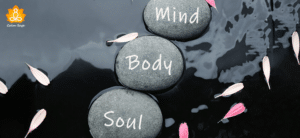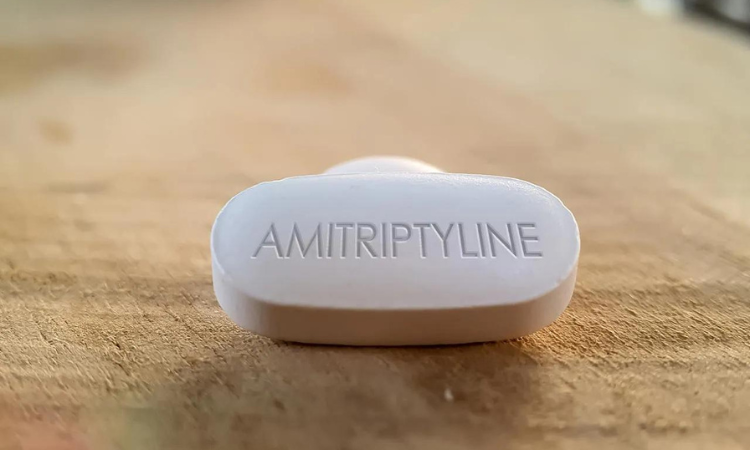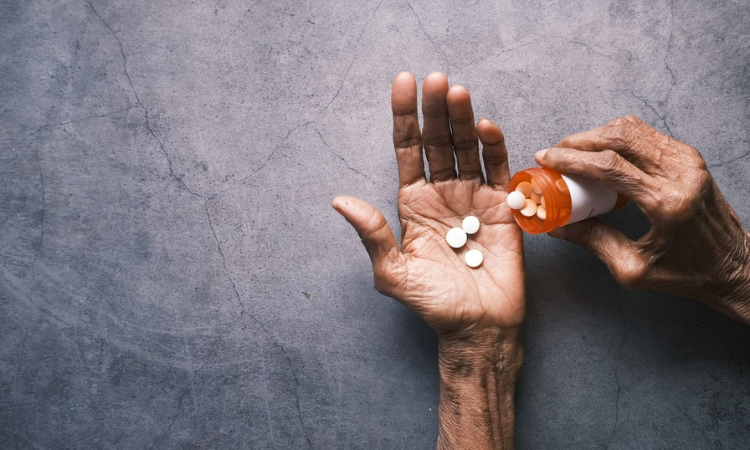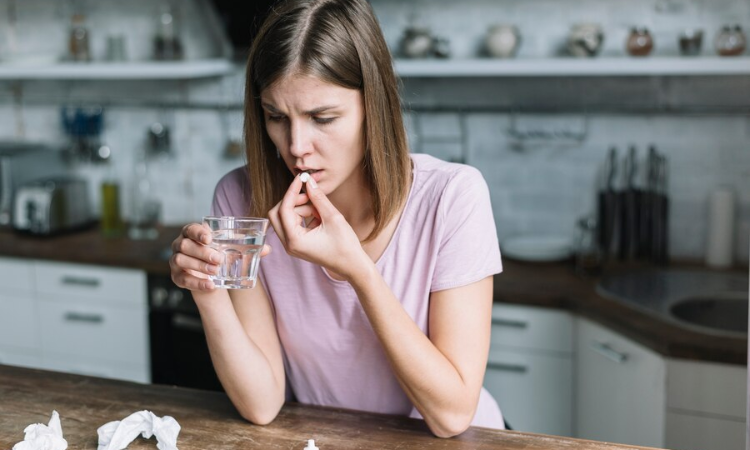
Introduction
Are you tired of undergoing three different therapies with three different practitioners? You search for therapy to address your mental well-being, a spiritual community for spirit, and a primary physician to look after your physical health. What if you could get a treatment where all three factors are treated as one unit? Sounds interesting, isn’t it? Holistic therapy addresses the three pillars of Mind, Body, and Spirit. Instead of focusing on the issue, it aims to treat the person as a whole. Moreover, holistic therapy can support regular addiction treatment.
Holistic therapy, also known as body-centered therapy or holistic psychotherapy, is a mixture of both traditional and non-traditional therapies. It consists of talk therapy sessions, meditation, breathwork, and hypnosis. Another interesting thing: It works well for physical symptoms caused by the mind, like muscle tension and digestive issues.
So, if you or someone you care about is looking for this type of therapy, then let’s discuss in detail what does holistic therapy mean, its forms, integrated approach, benefits, how it works, and other complementary and alternative treatments. The comprehensive understanding will help you choose the best approach tailored to your body.
What Does Holistic Therapy Mean?
Holistic therapy is about seeing the whole person—mind, body, and spirit—and understanding how they’re connected. It’s the idea that if one part of you isn’t doing well, it can affect the other parts too.
So, instead of treating issues one by one, holistic therapy tries to align every part of you. Therapists of holistic therapy consider factors such as lifestyle, relationships, stress levels, and belief systems to develop an overall understanding of an individual’s health. People often try holistic therapy to get to know and accept themselves better. Whether in-person or online, people seek holistic therapy for a deeper understanding and acceptance of their entire self.
In rehab for drugs and alcohol, doctors might use regular treatments like talking therapy and medicine. They also try other things like acupuncture and yoga. The goal is to make every part of a person’s life better.
Holistic therapy comes in various shapes and sizes, pulling inspiration from different types of therapy like:
- Psychodynamic therapy
- Cognitive Behavioral Therapy or CBT
- Using breath exercises
- Mindfulness techniques
- Reiki
Pillars of Holistic Health: Mind-Body-Spirit

Mind body and spirit are the pillars of human well-being. If one falls sick the other fails to operate smoothly. It’s not just about your body being healthy; it’s about how you live your whole life—your relationships, work, activities, and even your spiritual practices. That’s why holistic therapy was created by the Greek philosopher Hippocrates. It’s designed to help with everything at the same time.
1. What does holistic therapy mean for the mind?
Holistic therapy for the mind treats the whole person, understanding mental well-being. It focuses on addressing underlying causes for overall mental wellness.
2. What does holistic therapy mean for the Body?
Holistic therapy for the physical body treats the entire body, and overall well-being through various aspects like lifestyle, nutrition, and exercise. It aims to support the body’s natural healing processes for better physical health and balance.
3. What does holistic therapy mean for Spirit?
Holistic therapy for the spirit focuses on the inner part of a person. It includes activities like meditation and mindfulness to nurture the spirit.
Who is Holistic Therapy Good For?
Holistic therapy can be useful for treating various psychological issues like-
- Addictions
- Anxiety
- Depression
- Stress
Holistic therapy has been found effective in treating-
- Emotional difficulties
- Family problems
- Trauma
- Work-related issues
Because it aims to heal the entire person, it works well for problems that may not have one clear cause or impact on many parts of a person’s life. If you face some issues among these, this therapy is tailored for you.
Types of Holistic Therapy
Holistic therapy also existed in traditional medicine systems, such as Ayurveda and traditional Chinese medicine (TCM). Today, holistic psychotherapy is a broad term covering various specific treatments. Here are some common Japanese, Chinese, and other regional techniques used in holistic therapy.
Mind-Body Therapy
Mind-body therapy uses holistic practices to boost relaxation and improve overall health by enhancing how your mind and body work together. Techniques include-
- Hypnosis
- Relaxation
- Meditation
- Guided Imagery
- Biofeedback
- Group Support
- Art Therapy
Eclectic Or Integrative Therapy
Eclectic therapy is like personalized therapy. It combines various techniques to address individual needs, promoting healing and growth in mental health. Instead of sticking to one method, therapists pick and choose techniques from different approaches—like CBT, psychodynamic therapy, or behavioral therapy. It’s all about finding what works best for the individual.
Spiritual Therapy
Spiritual therapy involves using your faith and belief system to explore and address life challenges, treating both your mind and soul by relying on your higher power for guidance.
Somatic counseling
Somatic counseling is a therapy that focuses on the body to help heal from things like trauma and stress. It uses techniques like breathing, meditation, and dance in sessions.
Holistic Therapy for Addiction Treatment

Before knowing about the therapies, first, understand what does holistic therapy means for addiction treatment. In addiction treatment, holistic therapy means using different activities to help people stay away from addiction. They do things like art and music therapy, yoga, and mindfulness. These activities work together to take care of different parts of a person’s life and help them stay on track without going back to the addiction.
When people are working on overcoming addiction, many treatment programs take a holistic approach. This means they look at the whole person and use different methods like-
- Art therapy
- Music Therapy
- Tai Chi
- Rekiki
- Acupuncture
- Yoga
- Deep breathing
- Dance therapy
- Spiritual support
Some programs mix traditional treatments like medicines and alternative therapies. This helps because it tackles a person’s social, medical, psychological, and environmental needs for better recovery.
Free Holistic Therapies
Several holistic therapies are free and can be performed individually for overall well-being. These can be accessed for free, either through online resources or community programs. Here are a few-
- Mindfulness Meditation
- Yoga
- Nature Therapy
- Breathing Exercises
- Art and Creativity
- Community Programs
- Online Support Groups
Benefits of Holistic Therapy
Research has shown how positively it impacts various aspects of mental and physical well-being. This therapy has multiple benefits such as improved conditions in depression, anxiety, stress, cognitive function, family communication, addiction, trauma, and chronic pain.
In a 2019 randomized control trial, a study found that 230 teenage females who joined holistic therapy felt less stressed, anxious, and depressed compared to those who didn’t.
Another study in 2017, with 40 healthy adults, showed that a simple holistic technique called diaphragmatic breathing not only reduced stress but also improved how well the brain works.
Length and Structure of Holistic Therapy
The average duration of holistic therapy varies. It could range from a few weeks to several months, and sometimes even longer. Like exercise and a balanced diet, there’s no time to stop. The specific time can only be determined through discussions between the person in therapy and the therapist.
Holistic therapy sessions usually start by talking about how you’re feeling, both physically and emotionally. In group sessions, sharing personal stuff is optional but can help the group support each other. If it’s a long-term thing, you also talk about how things have been going since the last session.
After that, the therapist guides you through different exercises or activities. It could be mental stuff like meditation or talking, or physical things like massage or yoga. Most sessions have a mix of both.
Choose a Perfect holistic therapist

Regardless of which specific therapy you choose, you must ensure to take treatment from a therapist who has extensive experience and can treat the challenges you want to address. To check you can first discuss and understand what does holistic therapy means for them.
Search for practitioners who have licenses and certificates to practice the treatments. Even though you do always not need to go for a psychotherapist but still manage to find one. You should also make sure that your therapist has extensive training.
FAQs: What does holistic therapy mean?
Q1- Which is the best Holistic therapy for Anxiety & depression?
There are many holistic therapies like mindfulness, yoga, or meditation. However, for deeper understanding try consulting with your doctor
Q2- Who should not try Holistic Therapy?
Holistic therapy is always safe, but if you have serious mental health issues, consult with a doctor.
Q3- Which Holistic Therapy is good for addiction?
For addiction, holistic therapies like mindfulness, yoga, or art therapy can help. You can also seek personalized treatment.
Q4- Can holistic therapy help with trauma?
Yes, holistic therapy can help with trauma. Therapies like somatic will work. But it varies for each person.
Q5- How long does therapy take to work?
Holistic therapy’s length varies. Some feel better quickly, others take more time. Stick with it and be open.
Conclusion
In this article, we discussed what does holistic therapy means, its types, benefits, and several other things. You can seek a perfect therapist to get your treatment done. Holistic therapy might include things like movement, meditation, reiki, massage, or acupuncture. Research shows it can help with trauma, anxiety, and depression, and improve overall well-being and relationships. Besides all the benefits and treatments, remember that it’s not a substitute for medication. Make sure to find a licensed practitioner with the right credentials.
Relevance is a drug addiction and mental health treatment center in New Jersey. At Relevance Recovery, we take a broad spectrum approach to treatment that includes many treatment options you won’t find just anywhere, including treatment for mental health and holistic treatments. At Relevance, we provide a robust detox routine with medical supervision to counter the effects of withdrawal and any medical complications that can occur during the detox process and treatment.
References
https://oxfordtreatment.com/addiction-treatment/therapy/holistic/
https://www.verywellmind.com/holistic-therapy-definition-types-techniques-and-efficacy-5196420
https://www.ncbi.nlm.nih.gov/pmc/articles/PMC1273970/
https://www.healthline.com/health/somatic-experiencing#takeaway









